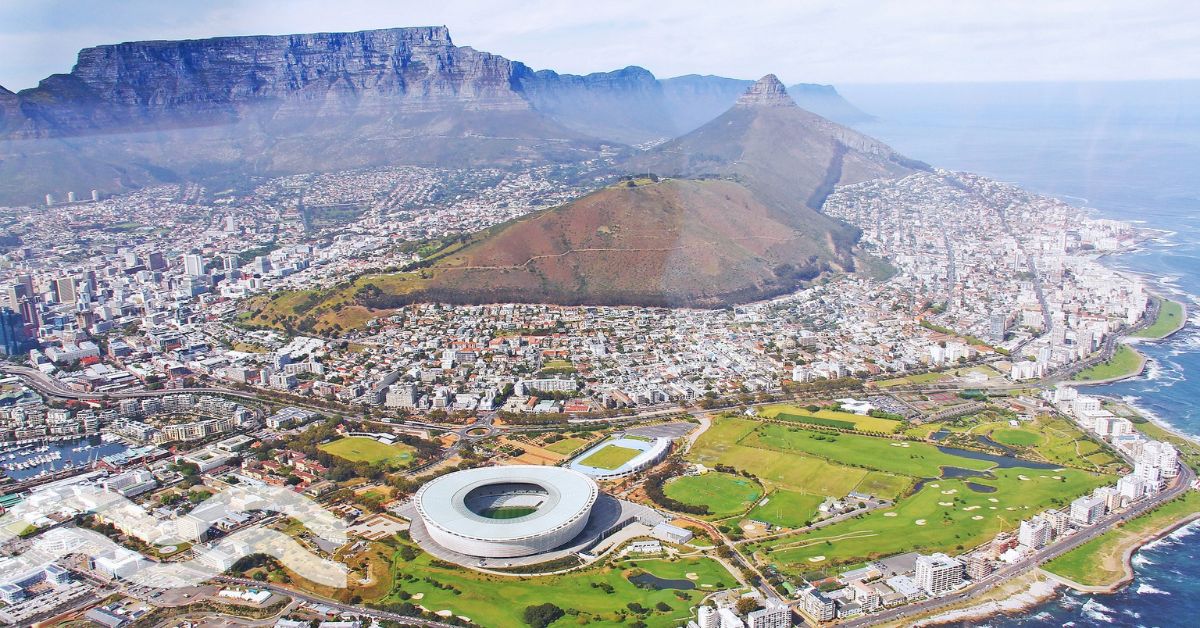A New Water Programme for Cape Town
Cape Town’s 10th edition of its Water Outlook report highlights the importance of implementing a New Water Programme, as the city still heavily relies on rainfall and dam storage to supply water to residents.
A 'Drought Monitoring and Response Framework' has also been developed to make water-resource decision-making more transparent. This framework assesses dam levels at the end of each hydrological year, on 31st October. It also defines five alert levels, each with its own suitable response.
At present, Cape Town is classified as being in the Drought Alert level (80-95 per cent). This status will remain in place until there is certainty about the volume of winter rainfall, the report notes.
Although water usage is expected to increase, the city has adopted a precautionary approach, targeting a 10 per cent savings on water usage by its customers for 2023, yet not imposing any formal water restrictions at this time.
The winter season and water usage
The Water Outlook report also notes that the coming winter season is expected to be dryer than usual, particularly during June, July, and August. Despite the early rains seen since March, the reports says it is critical for all residents to remain mindful of their water usage.
Councilor Zahid Badroodien, the Mayoral Committee Member for Water and Sanitation said that the city's water treatment plants need electricity to function optimally.
“In the event of load-shedding, these plants may be unable to channel dam water through the purification process, leading to a potential water shortage,” he said.
“Fewer chemical supplies would be available for water treatment, as manufacturers may potentially experience downtime during power outages".
“As the city's population continues to grow, it is essential that we consider the location and timing of elements of the New Water Programme while planning for the future. The 'Future Water Institute' team at the University of Cape Town is working with the City to tackle these challenges and ensure that all residents have access to ample clean water,” he added.
Desalination in Cape Town
The Water Outlook report also highlights the increasing importance of incorporating desalination into the water resource mix, but notes that careful attention needs to be paid to the power requirements to account for load-shedding.
Recently, monitoring committees have been established to oversee the terms and conditions following the approval of the water use licence for the Atlantis and Cape Flats Managed Aquifer Recharge sites.
Councillor Badroodien expressed excitement over the clearing efforts of 40,320 hectares of alien invasive plants in the water supply system catchments since April 2019. The initiative has already generated 571 employment opportunities, 44 per cent of which are filled by women. The scheme will also continue to thrive with a further R75 million being committed to clearing invasive alien plants over the next three years. Overall, this represents the most affordable of all the schemes involved in the New Water Programme.
Monitoring and water quality
The city has implemented extensive monitoring programmes involving boreholes and surface water stations to manage groundwater impacts. Data obtained from monitoring is used to manage resources and provide forecasts.
A protection plan for groundwater has also been developed to protect drinking supplies from contamination and pollution. The plan has defined various groundwater protection zones that allow for the management of development and land-use activities.
By 2040, the water strategy of the city aims to expand its water sources and reduce reliance on surface water schemes by 25 per cent. The future augmentation schemes will majorly comprise of groundwater schemes, desalination, and water reuse. An adaptable programme has been established to plan for future schemes that require an immediate decision.
The report concluded that any delay in implementing the New Water Programme will increase the likelihood of having to impose water restrictions on Cape Town and that prompt action is recommended to ensure water security.
Furthermore, the growth in water demand requires careful monitoring, with the Adaptable Programme being adjusted accordingly. Achieving long-term water security requires the implementation of Water Reuse and Desalination practices. Consequently, extensive feasibility and planning studies are ongoing to ensure implementation readiness in line with anticipated future water demand.







